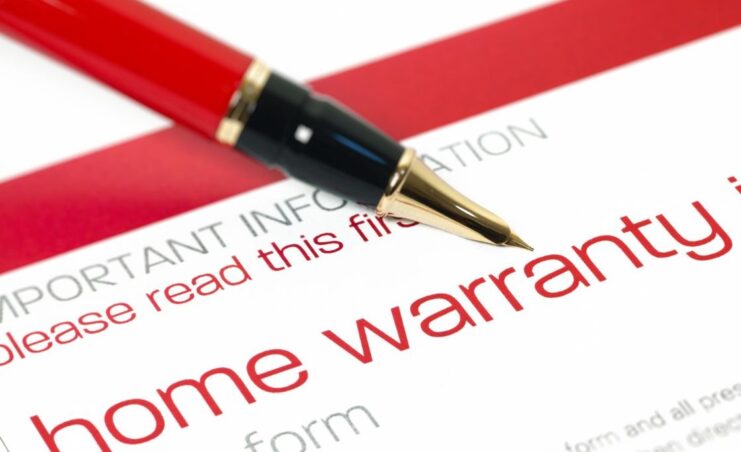If you’re planning on buying a house in the near future, you should know about home warranties. A home warranty is not the same as homeowners insurance. It’s an annual contract that’s meant to help homeowners with certain household repairs.
Should you sign up for this type of contract? Maybe. These are some pros and cons to consider before making your decision.
Pro: It Helps with Appliance Repairs

One of the biggest benefits of having a home warranty plan is that you will have help with maintenance, repairs and even replacements for household appliances. The plan helps cover costs for these services so that they are less of a financial burden.
The warranty company will also have a network of professionals to conduct the services for you, so you won’t have to spend too much time researching repair companies and asking for quotes.
What appliances are usually included in a home warranty plan?
- Water heaters
- Refrigerators
- Stoves
- Dishwashers
- Washers and dryers
- Garbage disposals
- Built-in microwaves
- Furnaces
- AC Units
Pro: It Fills a Gap Left by Homeowners Insurance
Homeowners insurance is a useful safety net for various household repairs and replacements that you might not be able to afford out of pocket.
However, the insurance is mainly relevant for repairs and replacements related to disastrous events, such as severe storms or housefires. It’s not meant to cover repairs and replacements due to more common occurrences, like wear and tear experienced over the years.
Home warranties can fill this coverage gap for you. If you have an appliance that needs repairs after years of regular use, you can make a claim. Your plan should help you cover a portion of the costs for repairs and get your appliance back in working condition.
Con: It Comes with Deductibles

As with all types of insurance and warranty plans, you will rarely be granted 100% coverage for submitted claims. At the very least, you will have to pay a deductible in order to receive approved coverage.
When it comes to home warranties, this deductible is often called a service fee. So, even if your warranty plan has approved your claim and is going to help you, you will need to have some funds readily available to pay this fee.
Con: Warranty Claims Aren’t Guaranteed Approval
There is always a possibility that your home warranty claim will be denied. It’s possible that the warranty company has certain exemptions for coverage that you are unaware of. For instance, some companies will not offer repairs when owners haven’t run routine maintenance on appliances for a long time.
They will see this as a sign of neglect from the owner, and therefore not worthy of coverage via the plan.
This is why a home warranty plan shouldn’t be the only safety net that people set up for themselves when they finally purchase a home. It’s important for homeowners to have a substantial emergency fund as well.
With a substantial emergency fund, you can withdraw the necessary savings to cover an appliance repair when your home warranty plan denies your claim. You might even be able to afford an appliance replacement out of pocket.
Without an emergency fund, you might struggle to cover urgent repair costs out of pocket. If you’re ever in a situation where you have to cover an urgent repair, but you don’t have enough savings, don’t panic — it’s possible that financial help is there for people in your position.
You could try to apply for a personal line of credit loan online. If your line of credit loan application gets approved, you can use temporary funds to manage your urgent repair and get your appliance up and running again. After resolving that issue, you can then follow a loan repayment plan, which is done through a straightforward billing cycle.
Coverage Limits and Caps
Home warranties typically have limits on coverage, both in terms of the dollar amount and specific items covered. It’s essential to understand these limits to avoid unexpected expenses. For instance, if your home warranty has a $1,000 cap on HVAC repairs, any costs exceeding that amount will be your responsibility.
Additionally, certain items, like luxury appliances or specialized systems, may not be fully covered, so be aware of these limitations when assessing your warranty’s value.
Pre-Existing Conditions

Most home warranties do not cover pre-existing conditions, which are issues that existed before the warranty was purchased. If your appliance or system already had a problem at the time you bought the warranty, it’s unlikely to be covered.
This emphasizes the importance of thoroughly inspecting your home and its systems before purchasing a warranty, as any existing issues may not be eligible for repair or replacement under the plan.
Contract Terms and Length
Home warranty contracts typically have a one-year term, but it’s crucial to understand the length and terms of your specific agreement. Some plans automatically renew, while others require manual renewal. Knowing the contract’s duration helps you plan for coverage continuity.
Additionally, consider any terms, conditions, or fees associated with canceling the contract early, should you choose to do so. Understanding these aspects ensures you can make informed decisions about your warranty.
Renewal and Cancellation

Before signing up for a home warranty, familiarize yourself with the renewal and cancellation policies. Some warranties automatically renew for another year unless you cancel, while others require you to proactively renew.
If you decide not to renew, be aware of any cancellation fees or notice periods. Understanding these terms allows you to manage your warranty according to your changing needs and budget, providing flexibility in your home protection plan.
So, what do you think? You’ve seen the pros and cons of signing up for a home warranty. Do you think you’ll sign up for this extra layer of financial protection or will you skip it entirely?

